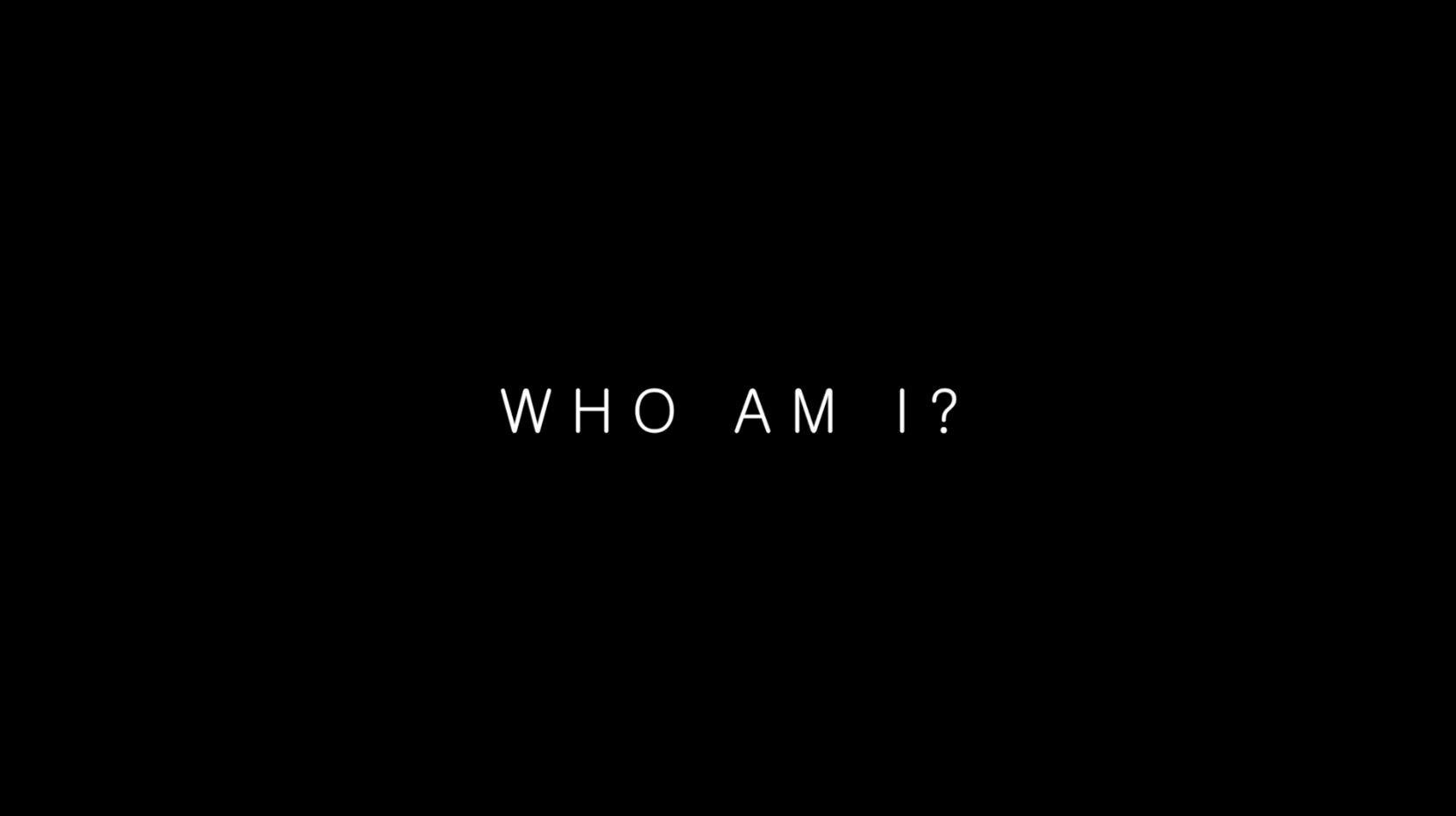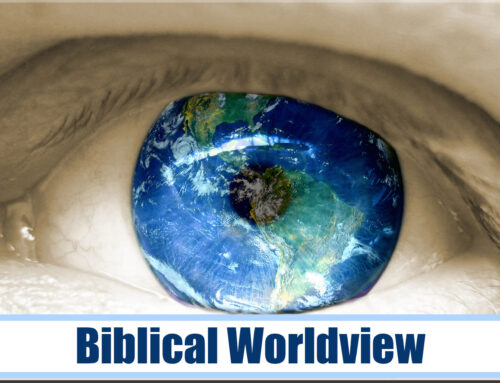Who am I?
By David McKay
Reprinted from The Banner of Truth Magazine, Issue 719-720, September 2023
How did we reach this point?—a society where a pastor finds himself explaining to elderly single Christian ladies during pastoral visits the biblical view of transgenderism. I was that pastor, and a few years ago such a question would have been unthinkable as well as unaskable. And yet it was an opportunity to present what the Bible says about human beings to two saints who love the Lord and his word.
A society where airline cabin crew wear badges stating the pronouns to be used in referring to them, and woe betide anyone who refuses to accept their demand.
A society where a teacher loses his job when he refuses to use a pupil’s preferred (different sex) pronouns.
These are just a few indicators that we live in a society where people are claiming a right to ‘self-identify’ as the person they choose to be, and where others must not only accept that choice but must approve of it and facilitate the expression of that chosen identity.
The transgender debate raises pressing questions about identity: who am I and who are you? We are in fact being taken right back to the basic question: what is a human? How we answer that question has profound implications for many of the great ethical issues we have to deal with and try to address in a biblical way: reproductive technologies, cloning, euthanasia, genetic enhancements, artificial intelligence (AI) and many more. We need to be able, as Christians, to answer the question, ‘What is a human?’
Humanity’s origin is described in Genesis 1:26, 27 and Genesis 2:7, 21-23, an account assumed throughout the Bible to be historical. Indeed, it is profoundly significant that in dealing with divorce in Matthew 19:3-9 Jesus assumes the historicity of the account of God’s institution of marriage in Genesis 2:24.
The stress throughout the Genesis record is on human uniqueness. This is evident from the very outset when the Lord says, ‘Let us make man in our image, after our likeness’ (Gen. 1:26). The Triune God plans the creation of humans in a manner different from that of any animal: they are the objects of his special care and concern. God’s method of creating man is unique—he ‘breathed into his nostrils the breath of life’ (Gen. 2:7). There is an immediate personal involvement on God’s part. Although he is a living creature like others, man has a unique constitution, made up of body and soul/spirit, a being with both physical and spiritual elements. No other creature is created thus.
The special status of man is emphasized by the fact that he is the bearer of the image of God. In Genesis 1:26 God says, ‘Let us make man in our image, after our likeness.’ Human beings, male and female (verse 27) are made in the image and likeness of God. Made in the image of a God who is triune, one God in three equal persons in an eternal relationship of love, man is made for a relationship of love with his Creator and, secondarily, for loving relationships with other human beings. This wonderful fact shapes every aspect of human life and explains man’s spiritual, intellectual, moral, creative, and relational capacities.
The relationship between God and man that existed in Eden can be described as a covenant: God gave himself in loving fellowship and took Adam and Eve as his people, bound to respond to him in loving obedience. It truly was a bond of love. For Adam the condition of the covenant was stated in the prohibition on eating from ‘the tree of the knowledge of good and evil’ (Gen. 2:17); the sanction was death for disobedience and the promise implied for obedience was continued fellowship with God.
While Adam obeyed God, fulfilling the mandate to ‘subdue [the earth] and have dominion’ (Gen. 1:28), he would enjoy the life for which he had been created, manifesting God’s image in covenant fellowship with God.
In this covenant Adam was the representative of the human race and, by God’s decree, Adam’s actions had consequences for us all. In an extended discussion in Romans 5:12ff. Paul describes the consequences for us of Adam’s disobedience, and we note the verdict of 1 Corinthians 15:22, ‘in Adam all die.’
The creation narrative in Genesis 1-2 provides the basis for two crucial things.
Human dignity: humans have value because God values them: it does not depend on having certain functioning capacities, whether mental or physical. All human beings have a God-given dignity that must be honoured and not compromised.
Human identity: it is the Creator who tells us who we are. Humans are not self-determining or self-identifying. As we will see, the attempt to self-identify by Adam in Eden was fatal. It was God who told Adam who he was—he was not free to construct his own identity to suit his own preferences. Christians need to be ready to assert graciously yet firmly, in often fraught situations, that identity is not self-generated but God-given. We are not free to be whoever we want. To tell someone that ‘You can be whoever and whatever you want to be’ is false, deceptive, and potentially very damaging.
We know, of course, that the perfection of Eden did not continue. At some point Adam and Eve fell into sin, and, because of Adam’s covenant headship, the results for the human race were catastrophic.
The process of temptation recorded in Genesis 3 is significant, the tactics being those often used by Satan. He begins by questioning God’s command—‘Did God actually say…?’ (verse 3), suggesting it is an unreasonable restriction on human freedom for the tree of the knowledge of good and evil to be put ‘off limits.’ Satan then moves to open denial of the truth of God’s word—‘You will not surely die’ (verse 4), a blatant lie and a rejection of the authority of God. The final step is the false offer—‘you will be like God’ (verse 5). Success follows. There could have been no greater lie and no greater folly in believing it.
What was that first fundamental sin? There were several elements in it, and no doubt pride and unbelief played their parts, but at heart the first sin was covenant-breaking. That first sin broke the Covenant of Works established in Eden by the Lord and struck at the basic relationship that should have existed between God and man.
Adam’s obligation in the covenant had been to render loving and willing obedience to God, in response to God’s love which had made such rich provision for his image-bearers. When he ate the fruit Adam became a covenant-breaker—refusing to accept God’s covenant kingship and attempting to make himself king (in fact accepting Satan’s dominion). Adam tried to put himself in God’s place—the essence of sin, asserting a godless autonomy that was an illusion.
What Adam did in Eden was to attempt to self-identify as an independent being who was equipped to be his own source of truth and morality. Adam claimed to be able to decide between truth and falsehood (deciding into which category the words of God and the words of Satan fell), and between good and evil (deciding whether eating the fruit was one or the other). His self-identification was in fact utterly futile, as well as rebellious. He could not change who he was. God still told him who he was and, now that he had sinned, the consequences of his action. No amount of asserting independence could make it a fact.
Ever since, the human race has repeated Adam’s folly, demonstrating that each one is an heir of his sin. We still want to self-identify as independent sources of truth and morality, sovereign determiners of who we are and how we will live. We are self-deceived in our self-identification. The urge that we see in society around us, and too often in our own hearts, to self-identify as what we are not is as old as Eden. We are simply demonstrating that we are ‘dead in … transgressions and sins’ (Eph. 2:1).
Only the sovereign grace of our covenant Lord can transform us and give us a new, true identity as children of God.







Leave A Comment
You must be logged in to post a comment.